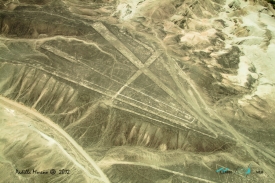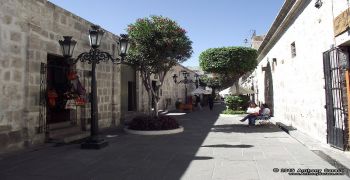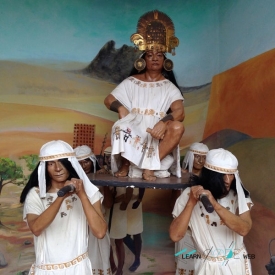ABOUT Casas Grandes
Casas Grandes (Spanish for Great Houses; also known as Paquimé) is a prehistoric archaeological site in the northern Mexican state of Chihuahua. Construction of the site is attributed to the Mogollon culture. Casas Grandes has been designated a UNESCO World Heritage Site and is under the purview of INAH.
Casas Grandes is one of the largest and most complex Mogollon culture sites in the region. Settlement began after 1130 AD, and the larger buildings developed into multi-storied dwellings after 1350 AD. The community was abandoned approximately 1450 AD. Casas Grandes is regarded as one of the most significant Mogollon archaeological zones in the northwestern Mexico region, linking it to other sites in Arizona and New Mexico in the United States, and exhibiting the expanse of the Mogollon sphere of influence.
Casas Grandes complex is located in a wide, fertile valley on the Casas Grandes or San Miguel River, 35 miles (56 km) south of Janos and 150 miles (240 km) northwest of the state capital, the city of Chihuahua. The settlement relied on irrigation to support its agriculture.
The archaeological zone is contained within the eponymous modern municipio (municipality) of Casas Grandes. The valley and region have been inhabited by indigenous groups for thousands of years.
Casas Grandes is one of the largest and most complex Mogollon culture sites in the region. Settlement began after 1130 AD, and the larger buildings developed into multi-storied dwellings after 1350 AD. The community was abandoned approximately 1450 AD. Casas Grandes is regarded as one of the most significant Mogollon archaeological zones in the northwestern Mexico region, linking it to other sites in Arizona and New Mexico in the United States, and exhibiting the expanse of the Mogollon sphere of influence.
Casas Grandes complex is located in a wide, fertile valley on the Casas Grandes or San Miguel River, 35 miles (56 km) south of Janos and 150 miles (240 km) northwest of the state capital, the city of Chihuahua. The settlement relied on irrigation to support its agriculture.
The archaeological zone is contained within the eponymous modern municipio (municipality) of Casas Grandes. The valley and region have been inhabited by indigenous groups for thousands of years.










